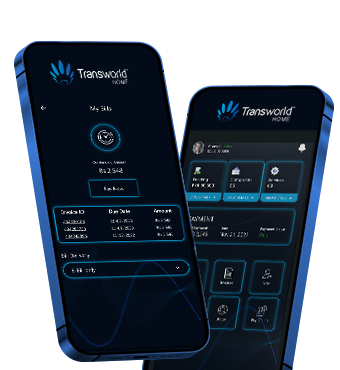Exploring the Latest Voice Technology Trends in Internet Usage

Discover the cutting-edge advancements in voice technology and how they are revolutionizing internet usage.
The Rise of Voice Assistants in Everyday Life
Voice assistants have become an integral part of our daily lives, providing us with convenience and assistance in various tasks. These intelligent virtual assistants, powered by voice recognition and natural language processing technologies, are designed to respond to voice commands and perform a wide range of functions. From setting reminders and sending messages to playing music and providing weather updates, voice assistants like Siri, Alexa, and Google Assistant have become our go-to companions.
The rise of voice assistants can be attributed to the increasing adoption of smart speakers and smartphones with built-in voice assistant capabilities. These devices have made it easier for users to interact with voice technology and experience its benefits. With voice assistants becoming more sophisticated and able to understand complex commands, they are expected to play an even bigger role in our everyday lives.
Voice Search Optimization for Websites
As voice technology continues to gain popularity, optimizing websites for voice search has become essential for businesses. Voice search refers to the use of voice commands to perform online searches using devices like smartphones, smart speakers, and voice-enabled virtual assistants. With the increasing use of voice assistants, more and more users are relying on voice search to find information, products, and services.
To optimize websites for voice search, businesses need to focus on creating conversational content that matches the natural language used in voice queries. This includes using long-tail keywords, answering specific questions, and providing concise and relevant information. Additionally, optimizing website speed, mobile responsiveness, and structured data can improve the chances of appearing in voice search results.
By adopting voice search optimization strategies, businesses can enhance their online visibility, attract more organic traffic, and stay ahead of the competition.
Voice-Controlled Smart Home Devices
Voice-controlled smart home devices have gained significant popularity in recent years, transforming traditional homes into smart and connected spaces. These devices, such as smart speakers, thermostats, lighting systems, and security systems, can be controlled using voice commands, offering convenience, efficiency, and enhanced home automation.
With voice-controlled smart home devices, users can simply speak commands to control various aspects of their homes, such as adjusting the temperature, turning on/off lights, playing music, locking doors, and even ordering groceries. The integration of voice technology with smart home devices has made it easier than ever for users to manage and control their homes using natural language.
As the technology continues to evolve, voice-controlled smart home devices are expected to become even more intelligent and capable of performing complex tasks, ultimately transforming the way we live and interact with our homes.
Integration of Voice Technology in E-commerce
Voice technology is revolutionizing the e-commerce industry, offering new opportunities for businesses to engage with customers and streamline the online shopping experience. With the rise of voice assistants and voice-enabled devices, users can now make purchases, track orders, and seek product recommendations using voice commands.
By integrating voice technology in e-commerce platforms, businesses can provide personalized and seamless shopping experiences. Voice assistants can help users find products based on their preferences, provide detailed information about products, and assist in the checkout process. Additionally, voice-enabled virtual shopping assistants can offer personalized recommendations and suggest complementary products, enhancing cross-selling and upselling opportunities.
However, integrating voice technology in e-commerce also brings challenges, such as ensuring accurate voice recognition, maintaining data privacy and security, and adapting to different accents and languages. Overcoming these challenges will be crucial for the future success of voice-enabled e-commerce.
Challenges and Future Prospects of Voice Technology
While voice technology has made significant advancements, it still faces certain challenges that need to be addressed for wider adoption and improved user experiences. One of the main challenges is accuracy in voice recognition, especially in noisy environments or with accents and dialects. Improving accuracy and reducing errors will be crucial for voice technology to gain trust and reliability.
Another challenge is privacy and security concerns. With voice assistants listening for voice commands, there is always a risk of unintentional recordings or unauthorized access to personal information. Stricter privacy regulations and robust security measures will be necessary to address these concerns and protect user data.
Despite these challenges, the future prospects of voice technology are promising. Voice assistants are expected to become more integrated into various devices and environments, such as cars, workplaces, and public spaces. Natural language processing and machine learning advancements will enable voice assistants to understand context and provide more personalized and intelligent responses. The potential applications of voice technology are vast, and its impact on industries like healthcare, education, and entertainment is likely to be profound.








